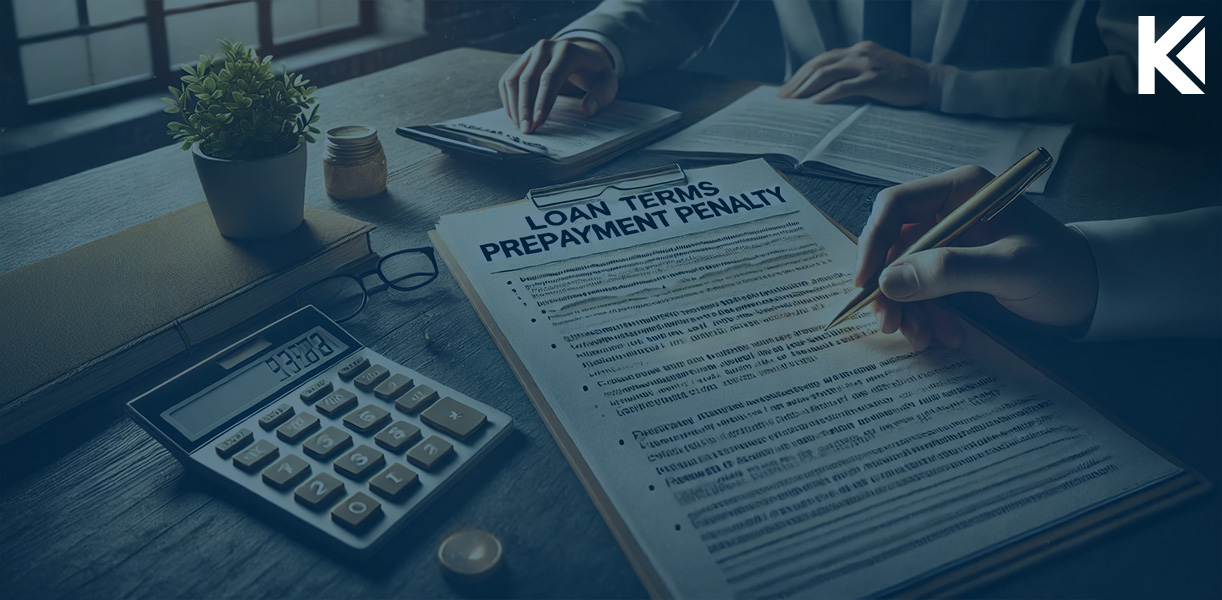When paying off a loan, you might assume that making extra payments or paying it off early would always be a good thing. However, with some loans, doing so could result in a prepayment penalty. If you’re considering paying off your mortgage or refinancing, understanding prepayment penalties is crucial to avoid unexpected costs. Here’s what you need to know about this often-overlooked fee.
What Is a Prepayment Penalty?
A prepayment penalty is a fee that some lenders charge if you pay off your loan earlier than agreed. This penalty compensates the lender for the interest they lose when you pay off the loan early. It applies to specific types of loans, including some mortgages, and is usually outlined in the loan agreement.
Key Features of Prepayment Penalties:
- Applies if you pay off the loan entirely or make extra payments beyond a certain limit.
- Typically found in mortgages, auto loans, and personal loans.
- The penalty amount depends on your loan terms and how early you pay off the balance.
Why Do Lenders Charge Prepayment Penalties?
Lenders earn money through the interest paid over the life of your loan. When you pay off a loan early, they lose some of that expected interest income. To offset this, lenders include prepayment penalties in some loan agreements.
Common Reasons for Prepayment Penalties:
- Protecting Profits: Helps lenders recover lost interest income.
- Discouraging Refinancing: Discourages borrowers from refinancing too soon, especially if interest rates drop.
- Stability for Lenders: Provides lenders with predictable revenue streams.
When Does a Prepayment Penalty Apply?
Not all loans include prepayment penalties. Here are common scenarios where this fee might come into play:
- Early Payoff: Paying off the entire loan before the agreed term, such as when selling your home or refinancing.
- Extra Payments: Making large extra payments that exceed a certain percentage of the loan balance within a set period.
- Refinancing: Replacing your loan with a new one, especially within the first few years of the loan term.
Important Note: Many modern mortgages, particularly FHA and VA loans, do not include prepayment penalties due to federal regulations.
How Are Prepayment Penalties Calculated?
The calculation of a prepayment penalty varies based on your lender and loan agreement. Common methods include:
- Percentage of Loan Balance: A set percentage (e.g., 2%) of the remaining loan balance.
- Number of Months’ Interest: Charging several months’ worth of interest as a penalty.
- Flat Fee: A fixed dollar amount, regardless of how early you pay off the loan.
Example:
If your remaining loan balance is $200,000 and your penalty is 2%, you would owe a $4,000 prepayment penalty.
How to Avoid Prepayment Penalties
If you’re considering paying off your loan early, here are steps to minimize or avoid prepayment penalties:
- Read Your Loan Agreement
Review the terms of your mortgage or loan agreement to check for any prepayment penalty clauses. - Ask Questions Before Signing
Before taking out a loan, ask your lender whether it includes a prepayment penalty and how it’s calculated. - Negotiate with Your Lender
In some cases, lenders may be willing to remove the prepayment penalty or offer a loan without one. - Time Your Payments Strategically
If the penalty applies only within the first few years of the loan, wait until that period has passed before paying off the balance.
Is a Loan with a Prepayment Penalty Worth It?
While avoiding prepayment penalties is ideal, loans with such fees sometimes offer lower interest rates or better terms. If you’re unlikely to pay off the loan early, the penalty might not be a concern.
Factors to Consider:
- Your Financial Goals: If refinancing or paying off the loan early is part of your plan, avoid loans with prepayment penalties.
- Loan Terms: Compare interest rates and overall costs to determine if the savings outweigh the risk of the penalty.
Conclusion
A prepayment penalty can be an unexpected cost when paying off a loan early. By understanding how these penalties work, when they apply, and how to avoid them, you can make more informed decisions about your mortgage or other loans. Whether you’re refinancing, selling your home, or simply making extra payments, knowing your loan terms is key to protecting your financial health.






